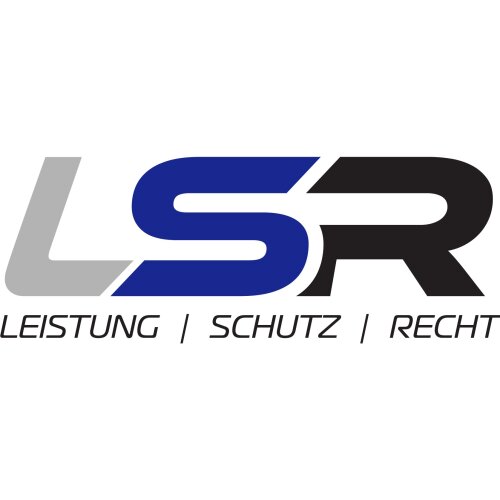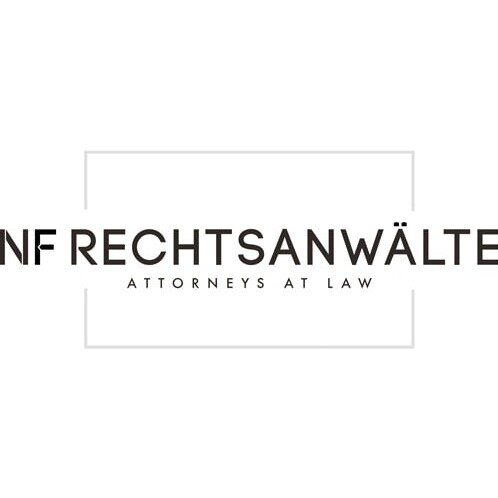Best Structured Finance Lawyers in Graz
Share your needs with us, get contacted by law firms.
Free. Takes 2 min.
List of the best lawyers in Graz, Austria
About Structured Finance Law in Graz, Austria
Structured Finance refers to complex financial instruments and arrangements used by organizations to manage risk, secure capital, and achieve specific financial goals. In Graz, Austria, Structured Finance typically includes securitizations, asset-backed securities, syndicated loans, project finance, and other forms of financial engineering. The legal framework governing these transactions is sophisticated, involving national and European Union financial regulations, Austrian civil and commercial codes, and various local compliance imperatives. Legal specialists in Graz guide corporates and investors through these intricate structures, ensuring both innovation and compliance with all legal requirements.
Why You May Need a Lawyer
There are numerous scenarios where seeking legal advice for Structured Finance in Graz is essential. Here are some common situations:
- Structuring or restructuring complex financial products involving multiple parties and assets.
- Engaging in cross-border finance deals subject to both Austrian and EU regulations.
- Negotiating syndicated loans or large-scale financing for infrastructure or development projects.
- Ensuring regulatory compliance with Austrian Financial Market Authority (FMA) and European regulators.
- Drafting or reviewing documentation for asset-backed securities or other structured investment products.
- Navigating tax implications related to structured financial transactions.
- Managing risks associated with insolvency or defaults in large transactions.
Legal counsel can help protect your interests, minimize tax exposure, and ensure all aspects of your Structured Finance arrangements are legally sound.
Local Laws Overview
Structured Finance activities in Graz are governed by a mix of Austrian federal statutes, European Union directives, and local financial regulations. Key aspects include:
- Austrian Banking Act (BWG): Governs banking activities, including lending and securitization during structured finance transactions.
- Austrian Capital Market Act (KMG): Sets disclosure and reporting requirements for issuers of securities.
- EU Securitization Regulation: Introduces prudential requirements and transparency standards on issuers and sponsors of securitizations.
- Corporate Law and Civil Code: Deal with contract formation, bankruptcy proceedings, and enforceability of complex contracts.
- Tax Codes: Influence the structuring of deals to optimize fiscal efficiency and compliance.
- Financial Market Authority (FMA) Oversight: The FMA monitors structured finance activities, ensuring transparency and protecting market integrity.
Collaborating with a local lawyer ensures you meet all regulatory standards in Graz, avoid penalties, and close transactions efficiently.
Frequently Asked Questions
What is Structured Finance, and how does it differ from traditional financing?
Structured Finance involves creating complex financial instruments or arrangements that go beyond standard loans or bonds. These are custom designed to address specific risk management, liquidity, or investment goals, often using various forms of collateral and multiple parties.
Do I need regulatory approval for Structured Finance deals in Graz?
Certain Structured Finance transactions, especially those involving public offerings or regulated entities, require notification or approval from the Austrian Financial Market Authority or other relevant bodies.
What laws apply to Structured Finance deals in Graz?
Key statutes include the Austrian Banking Act, Capital Market Act, European Securitization Regulation, and relevant tax laws. Contracts must also comply with local civil and commercial codes.
How are tax implications handled in Structured Finance?
Structured Finance can have complex tax impacts. Austrian tax codes need to be carefully considered to avoid adverse tax consequences or double taxation. Consulting with legal and tax professionals is recommended.
Are there restrictions on foreign investors or cross-border transactions?
While Austria is open to foreign investment, special reporting and regulatory requirements may apply for cross-border transactions, aligning with EU directives on transparency and anti-money laundering.
What are the main risks in Structured Finance?
Risks include legal enforceability, counterparty default, regulatory non-compliance, market volatility, and tax penalties. Professional legal advice helps to identify and mitigate these risks.
Is confidentiality guaranteed in Structured Finance transactions?
While most Structured Finance agreements include confidentiality provisions, compliance with mandatory disclosure requirements under Austrian or EU law may limit absolute confidentiality.
Can individuals, as opposed to corporations, engage in Structured Finance?
Structured Finance arrangements are most often designed for corporations, banks, or institutional investors due to their complexity, but individuals may participate indirectly through certain investment products.
How long does it take to close a Structured Finance deal in Graz?
Timelines vary based on complexity, regulatory requirements, and negotiation. Simple deals might close in weeks, while multi-party or cross-border transactions might require several months.
What should I look for when choosing a Structured Finance lawyer in Graz?
Seek a lawyer with expertise in both Austrian and EU finance law, proven experience in Structured Finance transactions, strong negotiation skills, and a reputation for clear communication and client service.
Additional Resources
If you need more information or guidance, consider contacting or researching the following organizations:
- Austrian Financial Market Authority (Finanzmarktaufsicht - FMA): The main regulatory body for finance in Austria.
- Chamber of Commerce Styria (Wirtschaftskammer Steiermark): Provides resources and advice for businesses in Graz.
- European Central Bank: For information on EU-level finance regulations impacting Graz and Austria.
- Tax Offices and Ministry of Finance (Finanzamt, Bundesministerium für Finanzen): For tax-related inquiries in finance transactions.
- Local banks and financial institutions with experience in structured products and risk management.
Next Steps
If you believe your situation involves Structured Finance or you are planning to engage in a complex finance transaction in Graz, follow these steps:
- Clearly define your goals and gather all relevant financial documents and transaction details.
- Seek out law firms or legal specialists in Graz with a proven background in Structured Finance.
- Arrange a consultation to discuss your needs, possible legal strategies, and fee structures.
- Work with your chosen lawyer to plan, structure, and execute your transaction in line with all legal and regulatory requirements.
- Stay updated on any changes in Austrian or EU finance laws that may impact your transactions.
Early legal support can help you navigate the complexities of Structured Finance and achieve your objectives efficiently and securely.
Lawzana helps you find the best lawyers and law firms in Graz through a curated and pre-screened list of qualified legal professionals. Our platform offers rankings and detailed profiles of attorneys and law firms, allowing you to compare based on practice areas, including Structured Finance, experience, and client feedback.
Each profile includes a description of the firm's areas of practice, client reviews, team members and partners, year of establishment, spoken languages, office locations, contact information, social media presence, and any published articles or resources. Most firms on our platform speak English and are experienced in both local and international legal matters.
Get a quote from top-rated law firms in Graz, Austria — quickly, securely, and without unnecessary hassle.
Disclaimer:
The information provided on this page is for general informational purposes only and does not constitute legal advice. While we strive to ensure the accuracy and relevance of the content, legal information may change over time, and interpretations of the law can vary. You should always consult with a qualified legal professional for advice specific to your situation.
We disclaim all liability for actions taken or not taken based on the content of this page. If you believe any information is incorrect or outdated, please contact us, and we will review and update it where appropriate.













